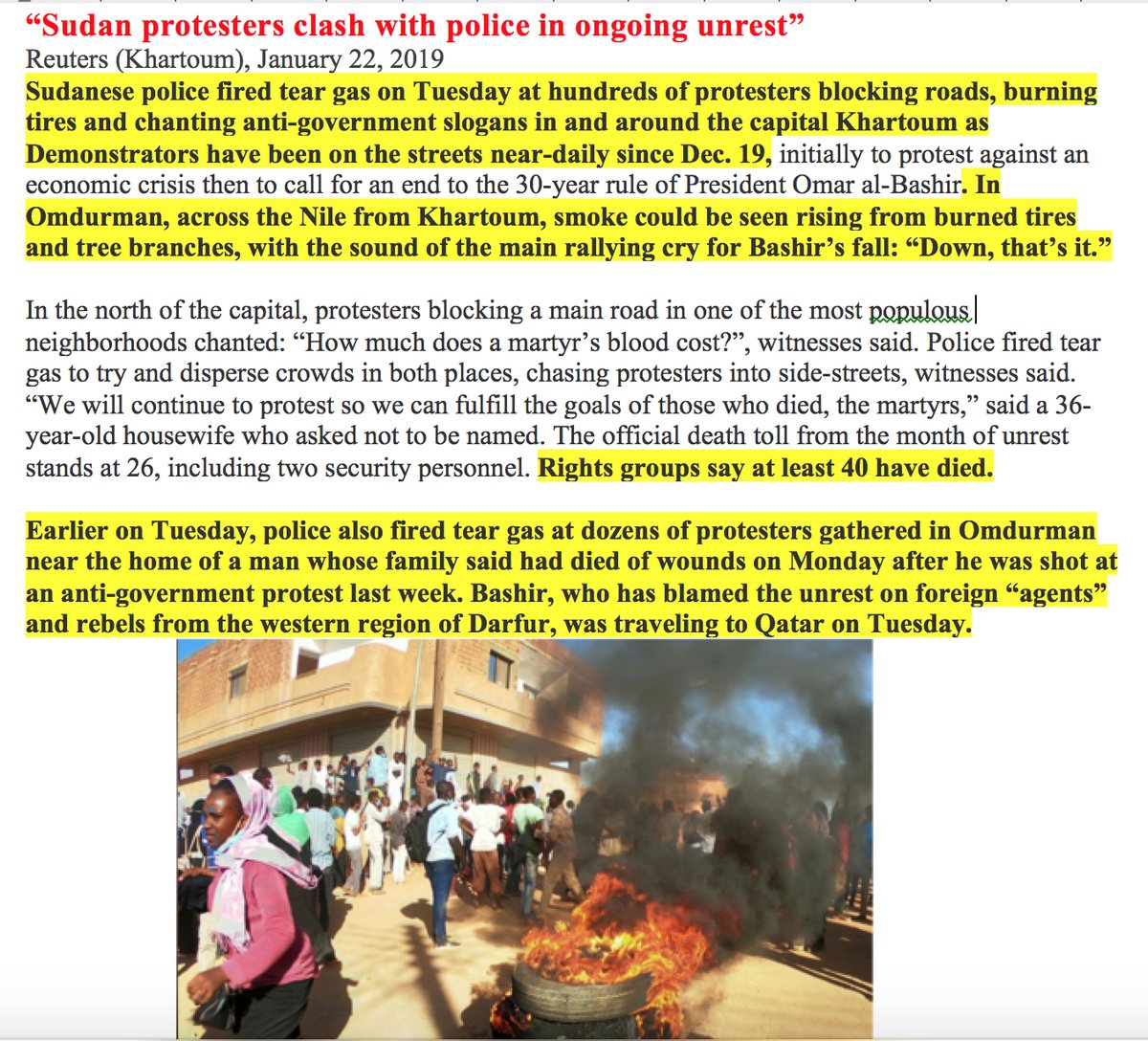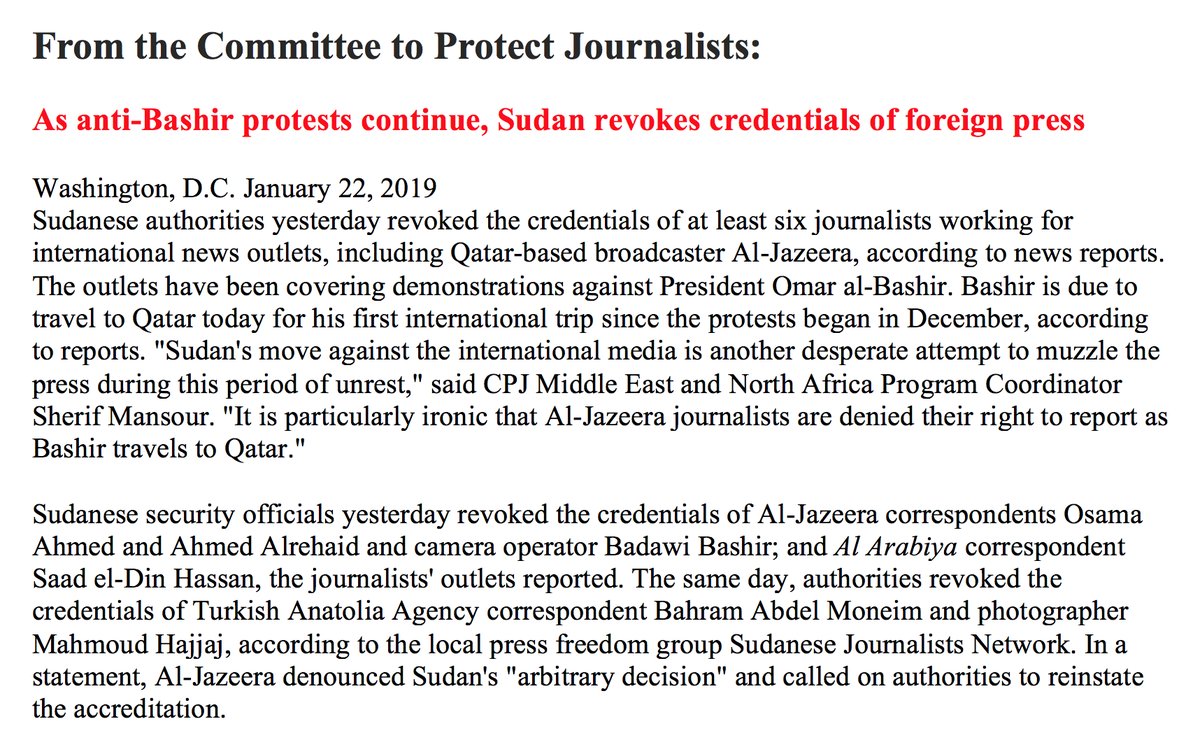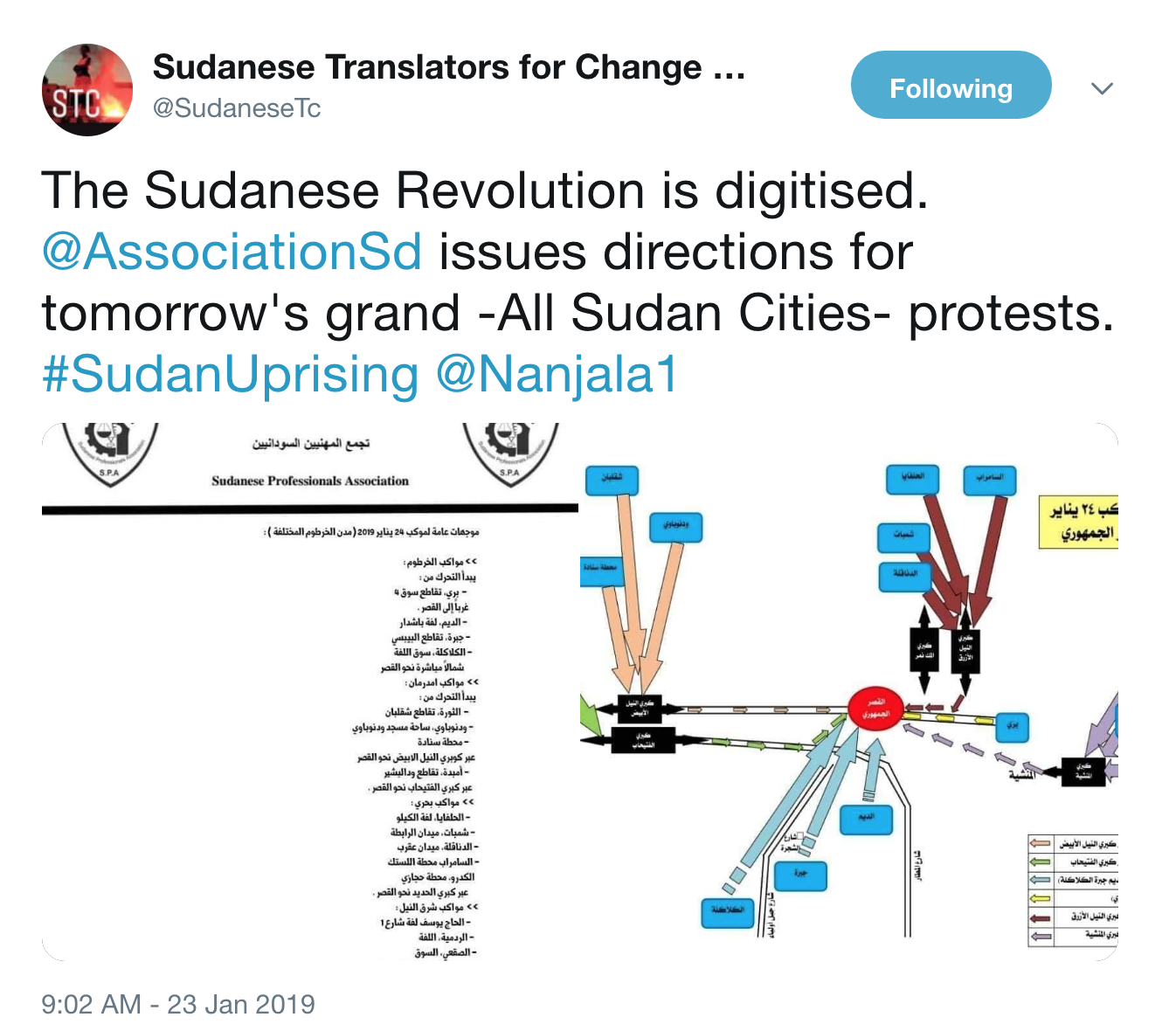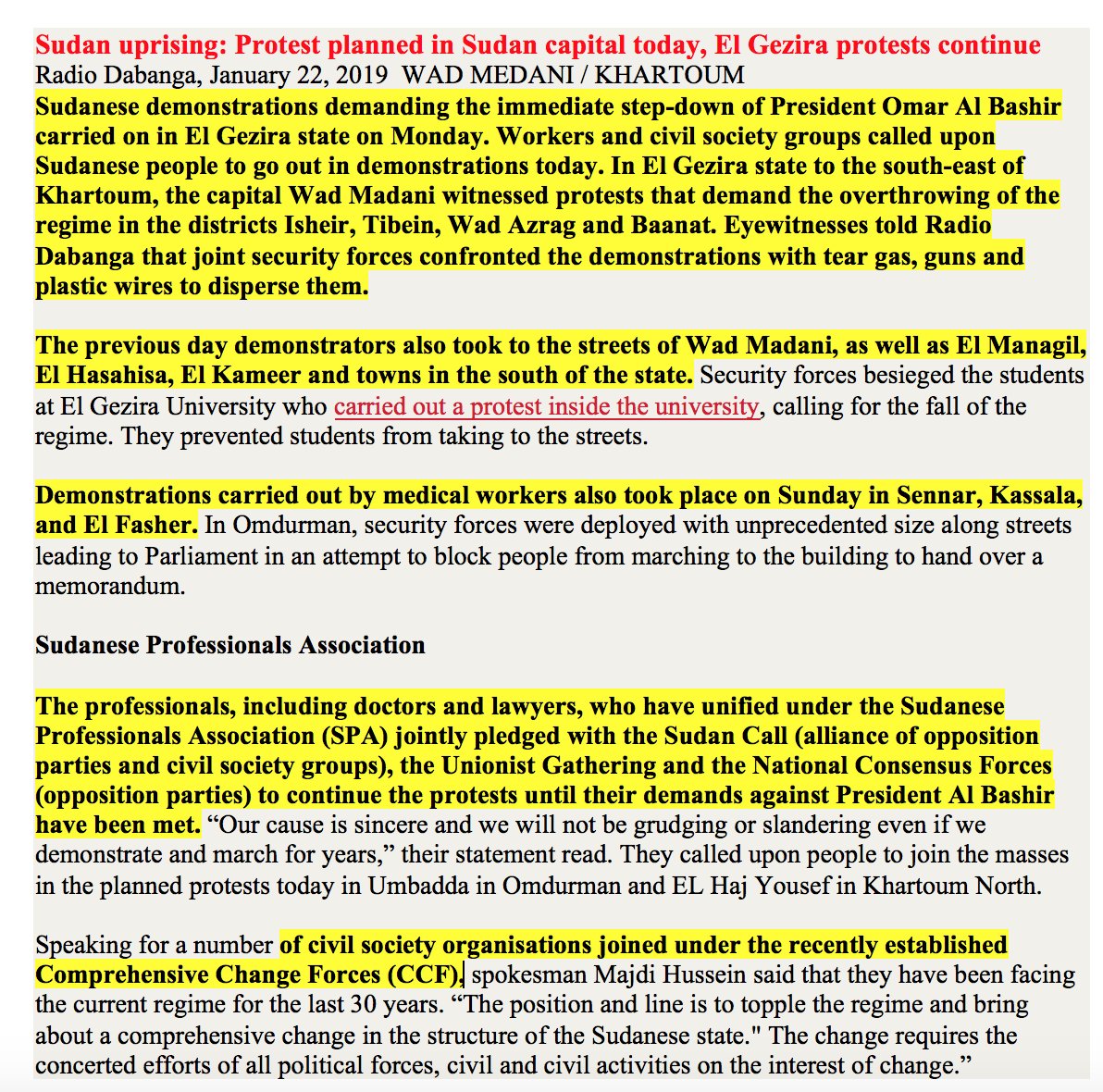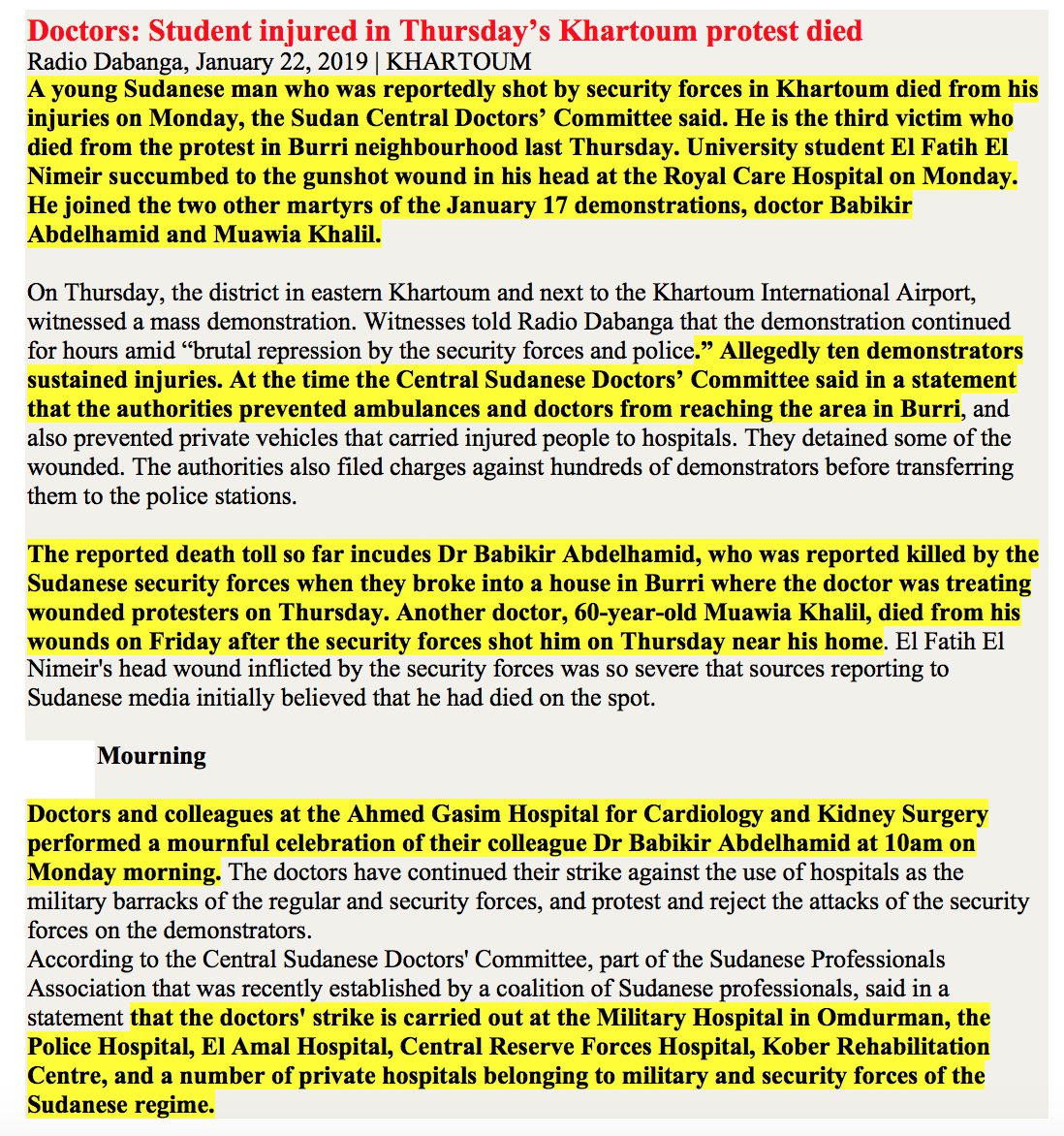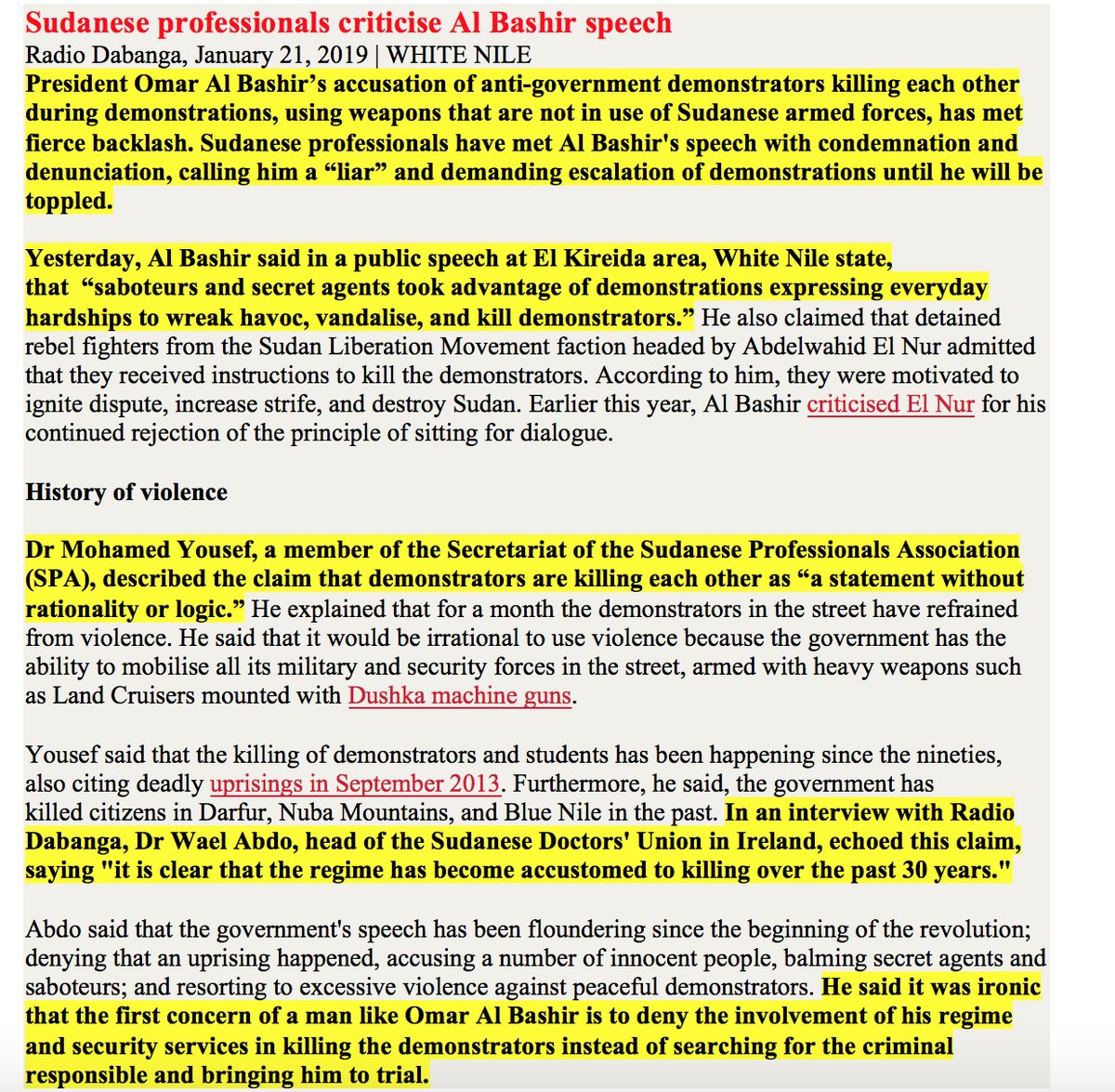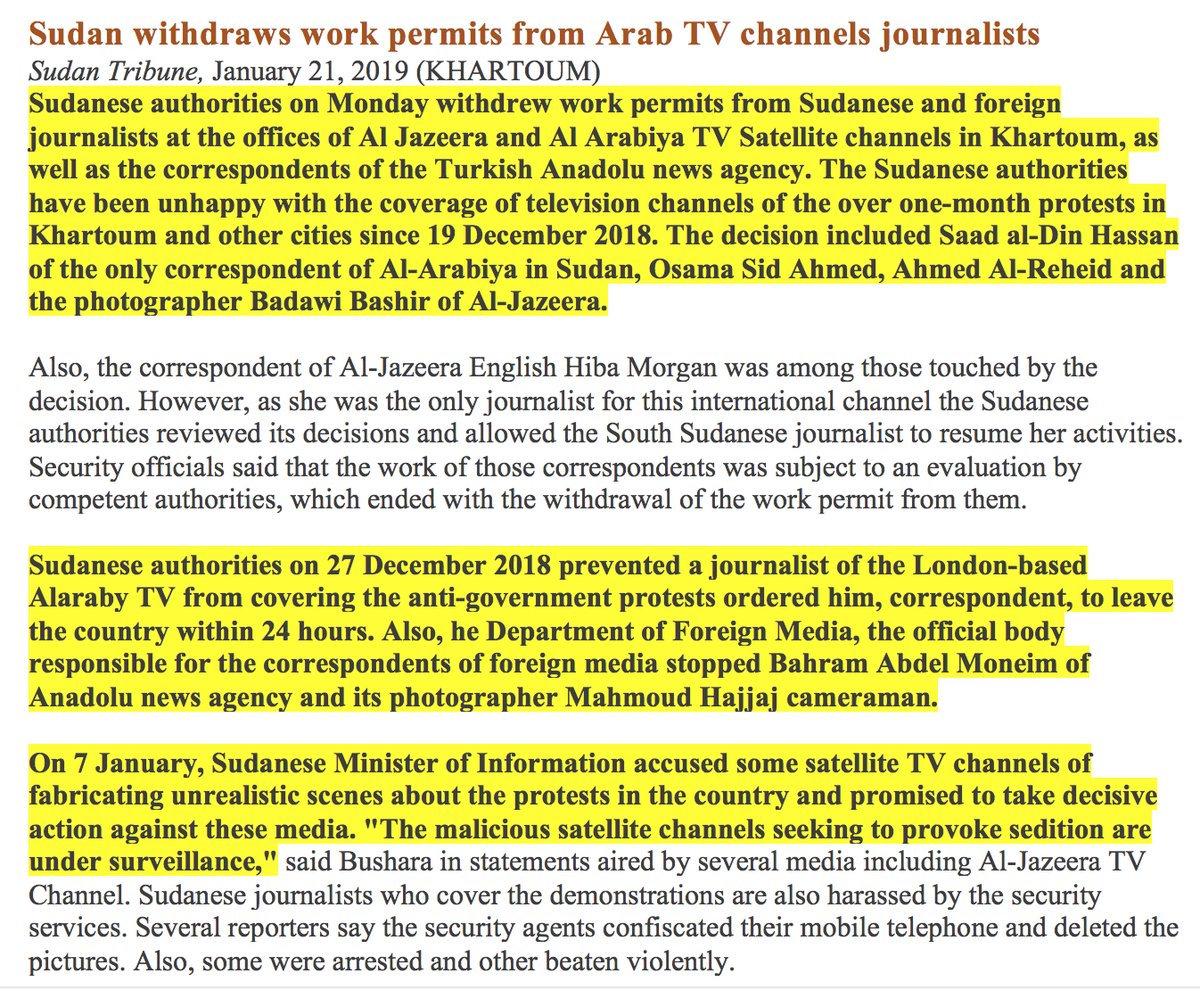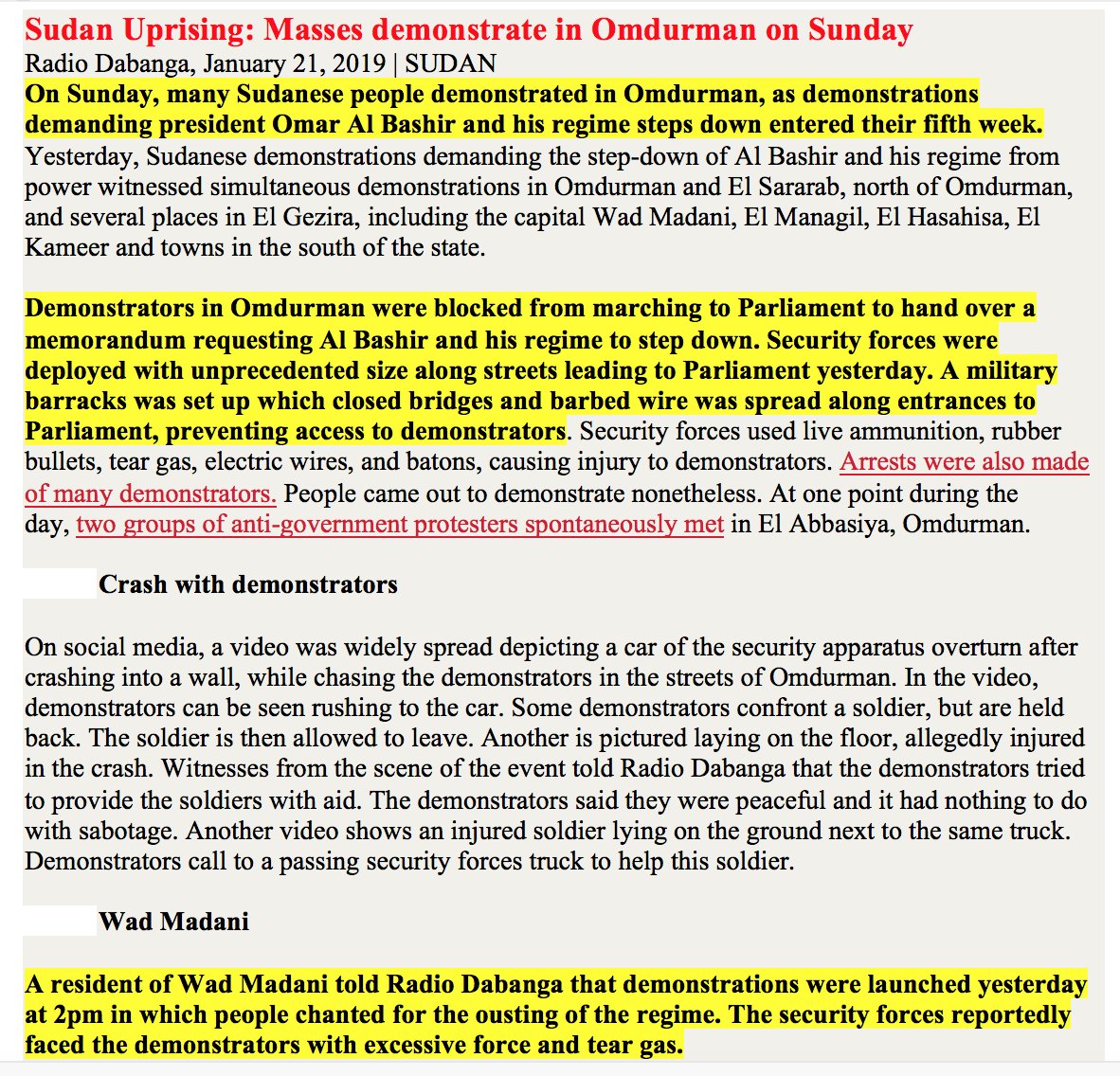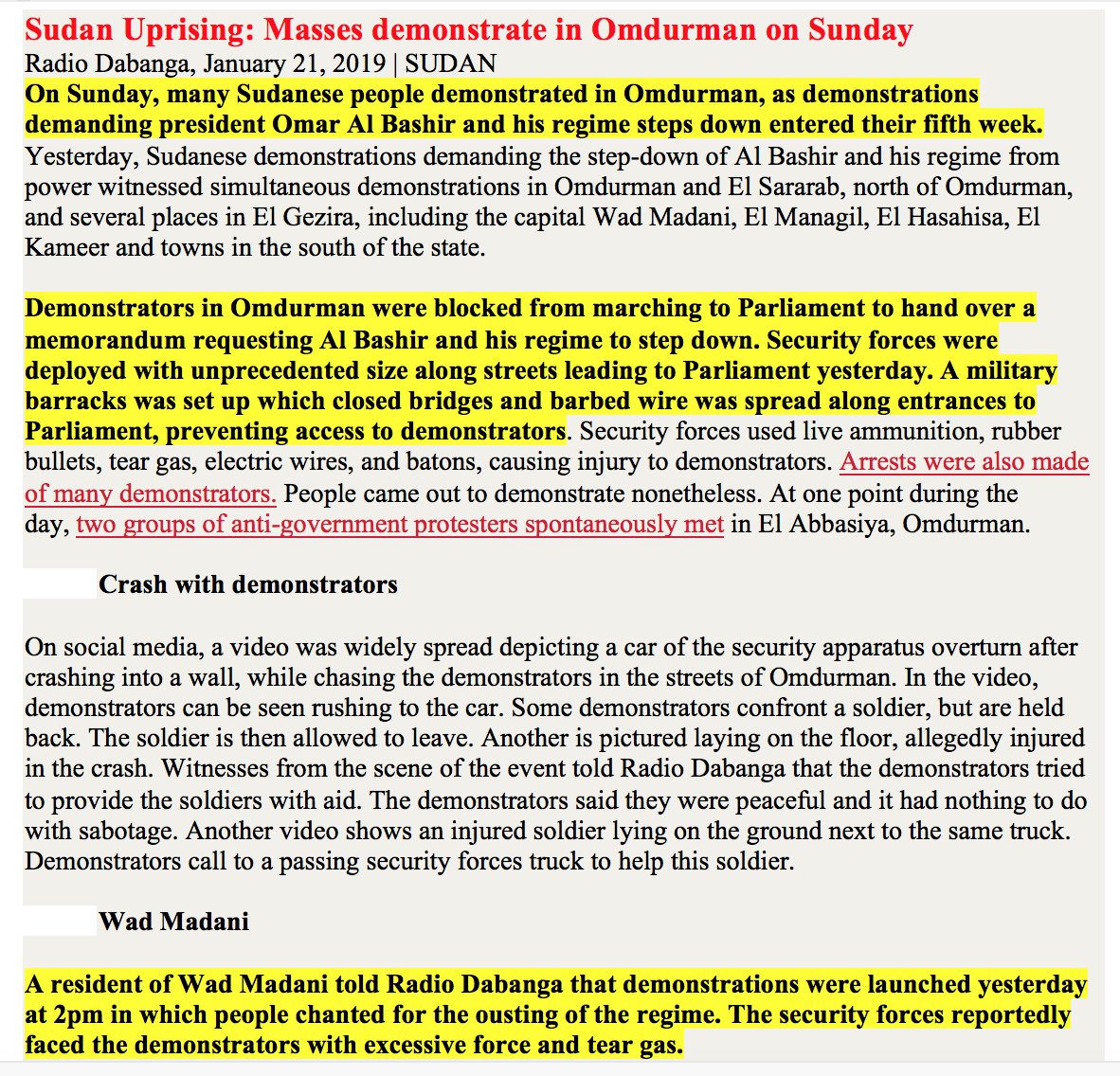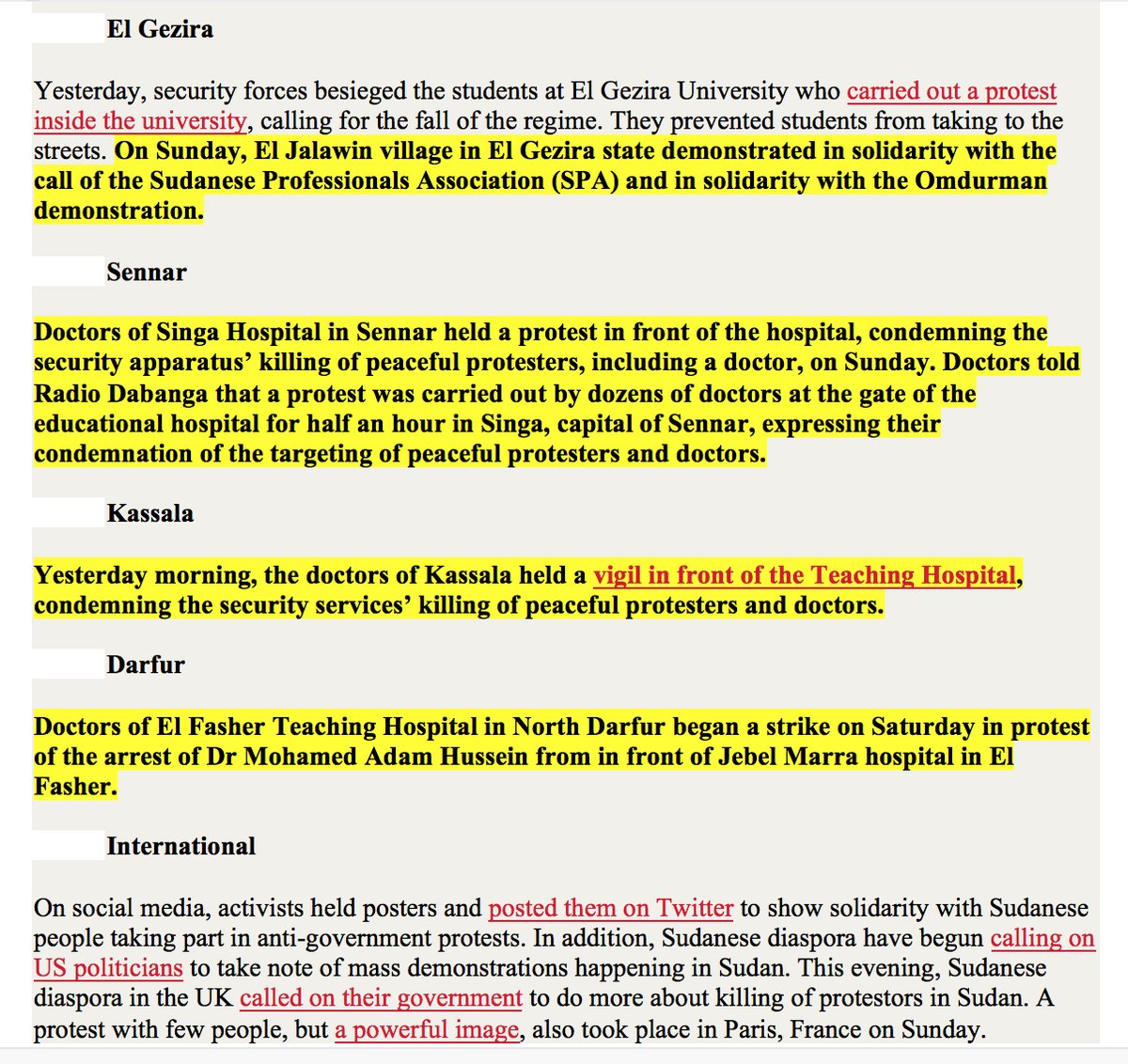Focusing on Sudan, primarily via Twitter
Eric Reeves [updated February 1, 2019]
News concerning the ongoing uprising in Sudan continues to be sufficiently voluminous that I can no longer adequately synthesize all of it, and am devoting my energies primarily to posting news reports—Sudanese and international—on Twitter [ @ReevesSudan ], as well interpolating commentary in longer news dispatches. I am also re-posting (re-Tweeting) the increasing outpouring of reporting from Sudanese social media that is now using Virtual Private Networks (VPNs) to avoid the Internet social media shutdown imposed by the al-Bashir regime. As time permits, I will attempt a synthesis of events of recent weeks, but these events are now moving extremely rapidly with no end in sight. On the contrary, the strength of the uprising seems to be growing and the resolve of the people of Sudan to be deepening. I sense that people understand that they have passed the point of no return: that if this moment fails, there will not be another one.
It is historically important to recall that the present demonstrations now well exceed in duration those of 1964 and 1985, when the army effectively changed regimes. The current Sudan Armed Forces (SAF) was thoroughly purged following the military coup that brought the National Islamic Front to power in June 1989, and while the most senior generals appear to support the al-Bashir regime, we can’t know with any certainty what the middle ranks are thinking at present (majors, colonels, even brigadier generals). But there is good reason to believe there are misgiving and intense dismay at the killing of innocent protestors, fellow Sudanese citizens. Many in the SAF certainly regret deeply being seen as sitting on the sidelines, while disguised security forces and Islamist militia cadres carry out a-Bashir’s ongoing ruthlessly survivalist and extremely violent repression.
All in the regime know full well what is being reported not only by Sudanese news sources but by the international press. Indeed, international press coverage is growing and there have been powerful op/eds in The New York Times, as well as an editorial in The Washington Post demanding that al-Bashir give up power. There has been excellent reportage by the BBC, Al Jazeera, Channel 4 (UK), The Financial Times, Agence France-Presse, Radio France International, and others. Both the primary English language Sudanese news sources—Sudan Tribune and Radio Dabanga—are doing very important work using their contacts on the ground. Radio Dabanga in particular regularly provides comprehensive, country-wide overviews of where the demonstrations are occurring and what the responses of the al-Bashir regime are.
On a personal note, I’ll say that this week begins my 21st year of full-time work as a Sudan researcher, analyst, and advocate (see | http://sudanreeves.org/2011/01/29/sudan-publications-testimony-and-academic-presentations/ ). My hopes for seeing peace, justice, and freedom come to the people of Sudan have never been higher.
Most recent news (as of January 23, 2019):
• Police fire tear gas at night-time protests in Sudan capital | Agence France-Presse (AFP), January 23, 2019 (Khartoum)
Sudanese police fired tear gas at hundreds of protesters in the capital and its twin city of Omdurman Tuesday as demonstrators staged night-time rallies against the government. The after-dark demonstrations were the latest in more than a month of escalating protests against President Omar al-Bashir’s three-decade rule. The veteran leader, who has made defiant appearances at loyalist rallies in Khartoum and other cities, arrived in Qatar on Tuesday for a two-day visit to discuss “bilateral relations” with his longstanding Gulf Arab ally. Bashir is also expected to discuss “efforts to achieve peace in Darfur,” state media reported, referring to the western region of Sudan that has been ravaged by a conflict between Sudanese forces and ethnic minority rebels.
[A tacit acknowledgement that the so-called “Doha Document for Peace in Darfur has been a disastrous failure, something long obvious but never acknowledge by EU and U.S.—ER]
Days before the protests erupted on December 19, Bashir met his Syrian counterpart Bashar al-Assad in Damascus, becoming the first Arab leader to visit Syria since a brutal conflict broke out there.
[Finally unsurprising that al-Bashir would be the first Arab leader to visit al-Assad—ER]
Chanting “people want a new Sudan,” hundreds of protesters demonstrated in the capital’s northern district of Bahari as darkness fell but riot police quickly confronted them with tear gas, witnesses said. “There’s heavy firing of tear gas and there’s smoke everywhere,” a demonstrator said without revealing his identity for security reasons. “Many protesters are coughing, but some are picking up tear gas canisters and throwing them back at the police.”
Earlier on Tuesday, demonstrators had staged a separate rally in Omdurman, across the Nile, witnesses said, adding it was also dispersed with tear gas. Shouting “overthrow, overthrow” and “freedom, peace and justice,” the catchword slogans of the protest movement, the demonstrators in Omdurman had gathered near the home of a dead protester, witnesses said, adding that rallies were also staged in the city as darkness fell.
More rallies called
The doctors’ branch of the Sudanese Professionals’ Association said the protester had died on Monday, four days after being wounded when demonstrators clashed with security forces in Khartoum. The SPA, an umbrella group of unions representing teachers, engineers and doctors, has taken the lead in organising the protests after hundreds of opposition activists were detained, and its doctors’ branch has taken casualties. It had called for night-time rallies on Tuesday, as well as demonstrations across “all towns and cities” on Thursday.
Human rights groups say several medics have been among more than 40 people killed in clashes with the security forces since the protests erupted on December 19. The authorities say 26 people have been killed, including at least one doctor, but blame rebel provocateurs they say have infiltrated the ranks of the protesters. The mushrooming protests are widely seen as the biggest threat to Bashir’s iron-fisted rule since he took power in an Islamist-backed coup in 1989…
Experts say cash injections from the Gulf states, led by Qatar, have helped stave off economic collapse in the past few years. Bashir survived protest movements in September 2013 and January last year. But his efforts to blame the United States for Sudan’s economic woes have fallen on increasingly deaf ears as people have struggled to buy even basic foods and medicines. Washington had imposed a trade embargo on Sudan in 1997, and it was lifted only in October 2017.
